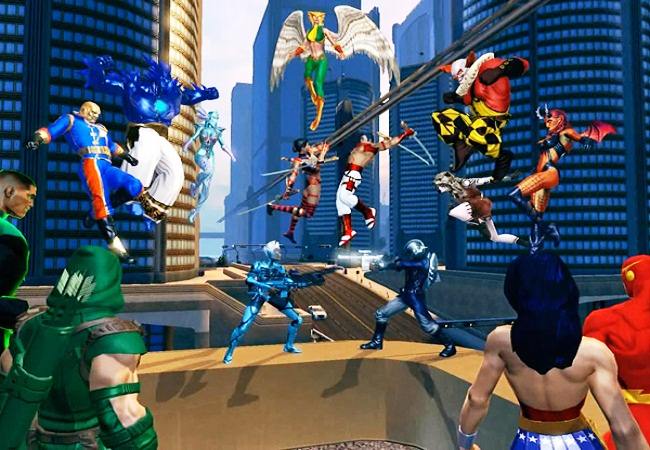One of the areas in which PC gaming has always had the upper hand over its console counterparts is the MMO market. While there have been a few moderately successful console MMOs in the past, such as Final Fantasy for the PS2 and Xbox 360, for the most part they seem to be unsuccessful and few in number. Just look at how quickly DC Universe switched to a Free-to-Play model since first being released on the PS3. While numbers have picked up a bit since then, the game remains marred by bugs and flaws.
Speaking with Gamespot, Andrei Yarantsau, VP of Publishing at Wargaming, the studio behind World of Tanks, gave his thoughts on why consoles are a dodgy market for MMOs.
Consoles are a nice, attractive part of the market, because there are no really well-known MMOs there, and the install base is huge. But as you know, those consoles are still lacking in important functionality. In MMOs, it’s very important for developers to have a fast reaction time for the service. If you’re a big company like Sony or Microsoft, then the approval time for release candidates is so, so long–you can’t change the game immediately.
Take us [Wargaming.net], as an example. We’re not a unique company in that we make mistakes–everybody does it. Sometimes we balance vehicles in an inappropriate way, and we have to listen to feedback from the community. If you see pressure from the player side you have to fix that problem immediately, otherwise they’ll leave.
In the current console climate then, it seems that both Sony and Microsoft simply have the wrong approach to authorising updates to games released on their consoles. These measures are in place for quality control, to make sure that the updates carry out their functions properly (though, judging by games like Skyrim, they still don’t do the job properly).
With the regular amount of updates based on constant community feedback that MMOs require, it is understandable why developers are turned off making them for consoles. Love them though we may, MMOs are inherently some of the most flawed and buggy games out there, and rely on regular updates to keep the community happy.
On top of those reasons, there are various other factors preventing consoles from feeling like a natural MMO platform. While current game controllers are fine pieces of design, the inputting of macros, typed communication and countless other things endemic to a good MMO experiences really require a keyboard and mouse. While these can be purchased for consoles, most gamers are reluctant to invest in them as they’d only really be used for the MMO that they’re playing (would you really buy a keyboard and mouse just to play the mediocre DC Universe Online?).
Finally, consoles are inherently a more casual gaming platform. Consoles are a cheap and cheerful purchase for those who want to play the latest games without worrying about having their computer updated every six months, or those who prefer to lay back on the sofa with a wireless controller rather than hunch over a keyboard with their faces pressed up against the screen.
Who knows, maybe if a truly strong MMO was released on consoles, and the hardware was there, then even the casual gamer would take note. After all, until this generation of consoles arrived, the idea of ‘online gaming’ seemed like something reserved for the geekiest and most hardcore. Perhaps MMOs are the next frontier to be crossed in console gaming. With how things stand currently however, it might be a while yet before we reach that point.


0 Comments